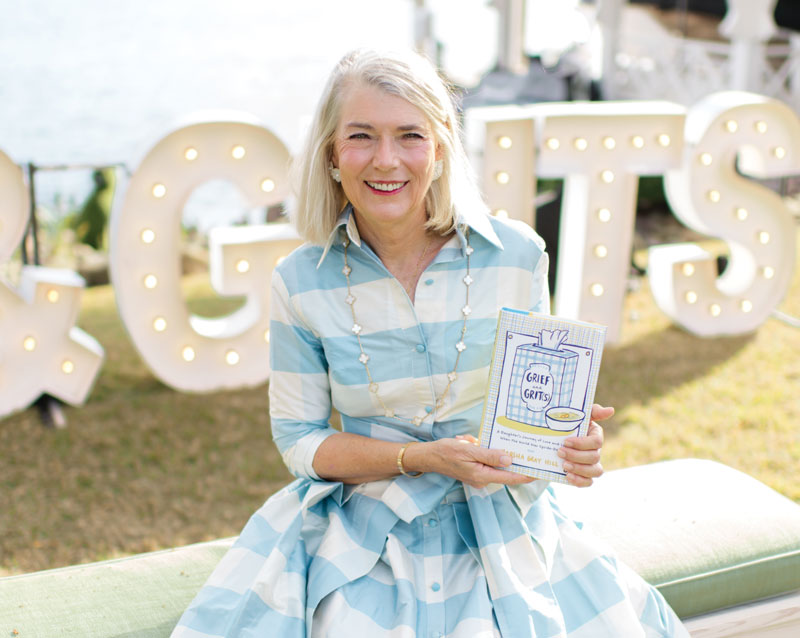
It’s natural, perhaps, to try and minimize past traumatic events. It’s that very tendency (infected by politics, unfortunately) that has caused collective amnesia about the worst days of COVID-19.
It was no worse than the flu (wrong). Deaths were overstated (wrong). Lockdowns were an overreaction (debatable; transmission was slowed, but at a high social and economic price). I contracted COVID-19 twice, by the way, and can report that drinking bleach only made me feel worse.
Marsha Gray Hill, a resident of Winter Park, doesn’t seem particularly political. She reminds me of my relatives in North Alabama.
She’s a friendly, chatty, down-to-earth daughter of the South (Kinston, North Carolina) who fiercely loves her church, her family and, especially, the woman she called “Mama” (which is how Southerners usually refer to their mothers).
Mama, whose name was Lanie Adaline Gray, died in May 2020 of COVID-19 at the age of 91. And Marsha, who prides herself on being a planner who’s ready for any contingency, couldn’t stop it from happening despite constant (and exhausting) advocacy as she navigated the healthcare system on her mother’s behalf during chaotic times.
Oh, Marsha knew that Mama would die someday — she had been meticulously planning the funeral for years — just not that she would die with no family by her bedside, of a disease that medical professionals were all but powerless to treat.
The experience of losing her mother — and her growing impression that the elderly were often diminished and dismissed as hopeless cases — prompted Marsha to write an extraordinary and highly personal book: Grief and Grit(s): A Daughter’s Journey of Love and Loss When the World Was Upside-Down (Forefront Books).
“It took me three years to write this book,” says Marsha, who’s married to developer Gregg Hill, founder of Hill Gray Seven, and has three sons (Gregg, Gray and Drew) and two daughters (Lauren Kelso and Brittany Carter). “I guess you could say it was a form of therapy.”
Many Winter Parkers know the sons, who are partners in Hill Gray Seven and developed Penn Place and Park Hill Townhomes as well as an upscale shopping and dining destination on U.S. 17-92 called Palm Hills. Gregg (the son) is also co-founder of Parkway Venture Capital with offices in Winter Park and New York City.
“I know there are people whose stories were a lot worse than mine,” says Marsha, who adds that she was blessed with the means to have options that others didn’t. But while every story is different, Marsha hopes that sharing hers will make those who hear it more empathetic and “better equipped for the dark parts of life that we can’t control.”
Grief and Grit(s) encompasses chapters that deal with Mama’s final years (and her final days). Alternating chapters tell the story of her life as a sharecropper’s daughter in Sandy Bottom, North Carolina, and as a young woman who was “kind and beautiful and as diligent in her studies as she was in everything else she did.”
Some chapters are harrowing, especially when the pandemic hits. Others, though, are humorous in a sincere and sentimental way. The writing style is conversational, as if you were having a heart-to-heart with an old friend over an icy pitcher of sweet tea. That makes the book’s less-comfortable lessons easier to assimilate.
Adaline — who reminds me of my own hardworking and faith-filled grandmother back on Sand Mountain — grew up to become a pillar of the Freewill Baptist Church, a switchboard operator for the Carolina Telephone Company and the wife of George Edward Gray, a cracker salesman with whom she had two children, Marsha and Eddie.
As Marsha tells it, Mama was beloved — not just by her family but by the entire community. She quietly touched hundreds of lives with her kindness and compassion: “Whenever there was a sick person who needed caring for, a baby being born or a wound that needed dressing, sure enough, my Mama was the one doing it.”
If anyone deserved a gentle exit, it was Mama. And Marsha still feels that she could have — should have — done more. “There’s no validation or feedback, no way of telling whether I did the right thing or even a good job. I drive myself crazy thinking of what more I could have done. The answer, of course, is nothing. I just wish that were more comforting.”
The ultimate lesson from Grief and Grit(s) — and, by extension, of COVID-19 — is to rethink the way we as a society regard the elderly and our responsibility to them. And to initiate those difficult but necessary family conversations about how to help parents and other loved ones through their inevitable transitions with grace and dignity.
“Our population is aging faster than we can keep up,” writes Marsha. “How are we going to handle that? How do we want to be handled when we get there? If seniors are so easily cast off and triaged during a national emergency, is it any wonder that we’re so terrified to get old?”
